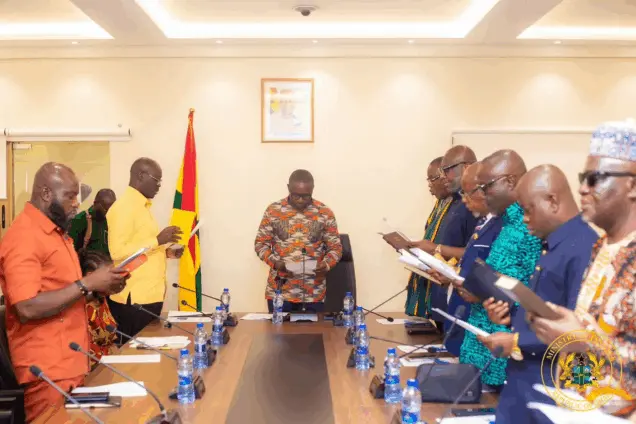The Ghanaian Cedi has recently shown encouraging signs of appreciation against the US dollar, sparking cautious optimism among investors and citizens alike. However, Prof. Lord Mensah, a respected financial economist, cautions that these gains may be short-lived without substantial, real-world growth in key economic sectors. Speaking on JoyNews’ The Pulse Show, Prof. Mensah highlighted the need for a fundamental transformation beyond short-term fiscal measures to ensure the sustainability of the Ghanaian Cedi. This analysis delves into his insights, exploring the factors influencing the currency’s fluctuations and the imperative for economic growth Ghana.
Prof. Mensah acknowledged the recent strengthening of the Cedi against the US dollar but warned against complacency. “It’s not going to run forever… the dynamics are so sudden, and it’s such a sharp drop for a country like Ghana to sustain,” he stated, emphasizing the potential for a reversal if underlying economic issues are not addressed. He suggested that the current upward trend might be a temporary effect of stabilization efforts, a normal fluctuation in the early stages. Such interventions, while helpful, cannot replace the need for solid economic growth Ghana.
According to Prof. Mensah, sustainable currency strength hinges on the performance of critical sectors like agriculture, mining, and manufacturing. These sectors form the backbone of a resilient economy, generating tangible value and reducing reliance on external factors. The impact of the real sector kicking in will have a far reaching effect on the Ghanaian Cedi’s appreciation within the fiscal year.
Fiscal and monetary policies can certainly influence exchange rates in the short term. However, Prof. Mensah emphasized that such measures are merely a temporary fix. The true path to a stable and appreciating Ghanaian Cedi lies in fostering real sector improvements, driving productivity, and diversifying the economy.
Despite the cautious optimism surrounding the Cedi’s recent appreciation, economists continue to urge a more profound economic transformation. While investors and the public may feel a sense of relief, experts emphasize that sustainable stability must be rooted in productivity and growth, not just short-term market corrections. The fluctuations in the Ghanaian Cedi have wide ranging implications for investors, citizens and the economy.
In conclusion, Prof. Mensah’s insights serve as a vital reminder that the Ghanaian Cedi’s gains must be underpinned by real economic growth Ghana. Focusing on strengthening agriculture, mining, and manufacturing is crucial for long-term stability. The call for fundamental economic transformation remains paramount, urging policymakers and stakeholders to prioritize sustainable development over temporary solutions to bolster the Ghanaian Cedi.
Image Source: MYJOYONLINE





















